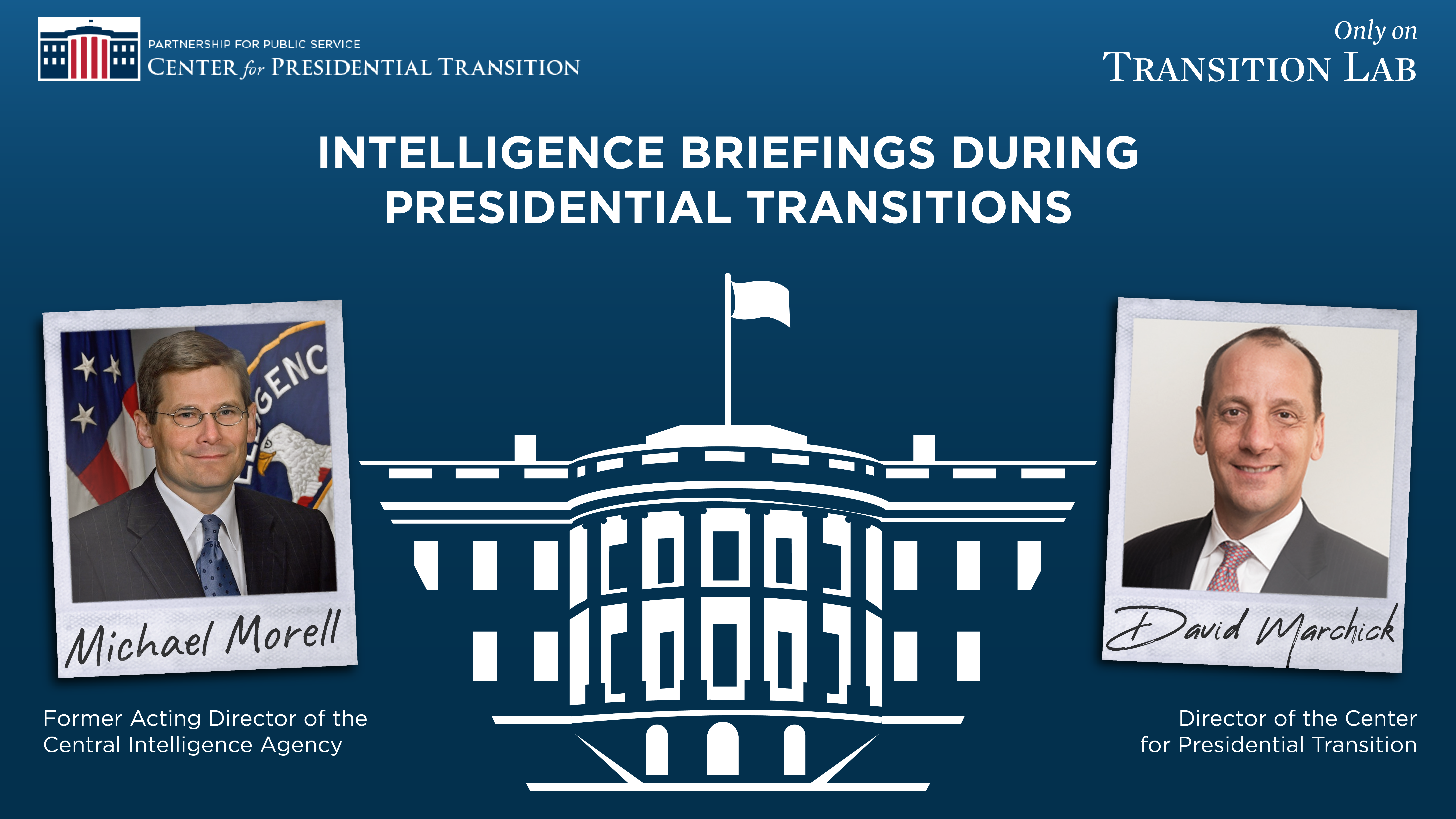Blog
August 17, 2020
Intelligence briefings during presidential transitions
Michael Morell is a leading intelligence analyst with over 30 years of experience at the CIA, including running the agency. Before retiring from the CIA in 2013, Morell worked for six different presidents and served as former President George W. Bush’s daily intelligence briefer, including on 9/11. In this Transition Lab episode, host David Marchick joined Morell for a wide-ranging discussion about intelligence-sharing during presidential elections and transitions, foreign interference during presidential elections, and how the 2020 candidates can build strong relationships with the intelligence community.
[tunein id=”t156572337″]Read the highlights:
Marchick asked Morell why giving intelligence briefings to presidential candidates is so important.
Morell: “I think it’s very important for candidates for president to have…a rough understanding…of…what the main threats are to the country…(It’s) even more important that you don’t say something during the campaign that actually undermines the national security of the United States. I think the briefing helps candidates in both of those ways.”
Marchick asked Morell when presidential candidates begin to receive intelligence briefings and what they contain.
Morell: “Historically, they’ve been done in the immediate aftermath of the conventions. So when an individual becomes their party’s nominee, the briefing is offered to them…It’s an analytic briefing, so there’s no…operations discussed, no covert actions discussed, no sources and methods discussed. It’s simply what do we see as the threats…why do we see it that way…how those threats evolved and where might they be headed?”
Marchick asked Morell how briefings for a president-elect differs from those given to presidential candidates.
Morell: “In addition to getting the president’s daily brief, the president-elect is also getting…background briefings…(The current administration will) also bring in deep experts…to…talk to (the president-elect) in much greater depth about particular issues…The other thing that a president-elect gets…is a briefing on CIA’s covert actions….It’s important for the president elect to get this briefing…because on Inauguration Day, these covert actions will become the new president’s.”
Marchick asked Morell to discuss foreign interference in presidential elections.
Morell: “The biggest threat overall, without a doubt…is (that hackers would) actually get inside voting systems…It’s not so much about changing the tally at the end of the day. It would be about…having people show up on Election Day expecting to vote and having a poll worker tell them, ‘I’m sorry, you’re not registered’…The impact that that would have…on the way people viewed the election…would be a very, very, very serious thing.”
Marchick asked Morell how he would advise President Trump to cultivate strong relationships with the intelligence community.
Morell: “Number one, it is perfectly acceptable for you not to agree with what the intelligence community is telling you…But don’t take your disagreement and make it public…Leave it in the room and have a discussion about it…Number two is to appoint to the senior positions in the intelligence community, not politicians, but intelligence professionals, people who grew up in the environment of call it like you see them tell it like it is.”
Marchick asked Morell how he would advise Democratic presidential nominee Joseph Biden to cultivate strong relationships with the intelligence community.
Morell: “I think it’s very important that…a President Biden visit an intelligence agency, the DNI (director of national intelligence), or the CIA, very early on in his administration and let people know that he wants them to call it like they see it… that he knows that intelligence is not perfect…but that he will listen and he will take his daily briefing every day…I too would advise him… that… it’s important to appoint professionals, not politicians to those senior jobs.”
